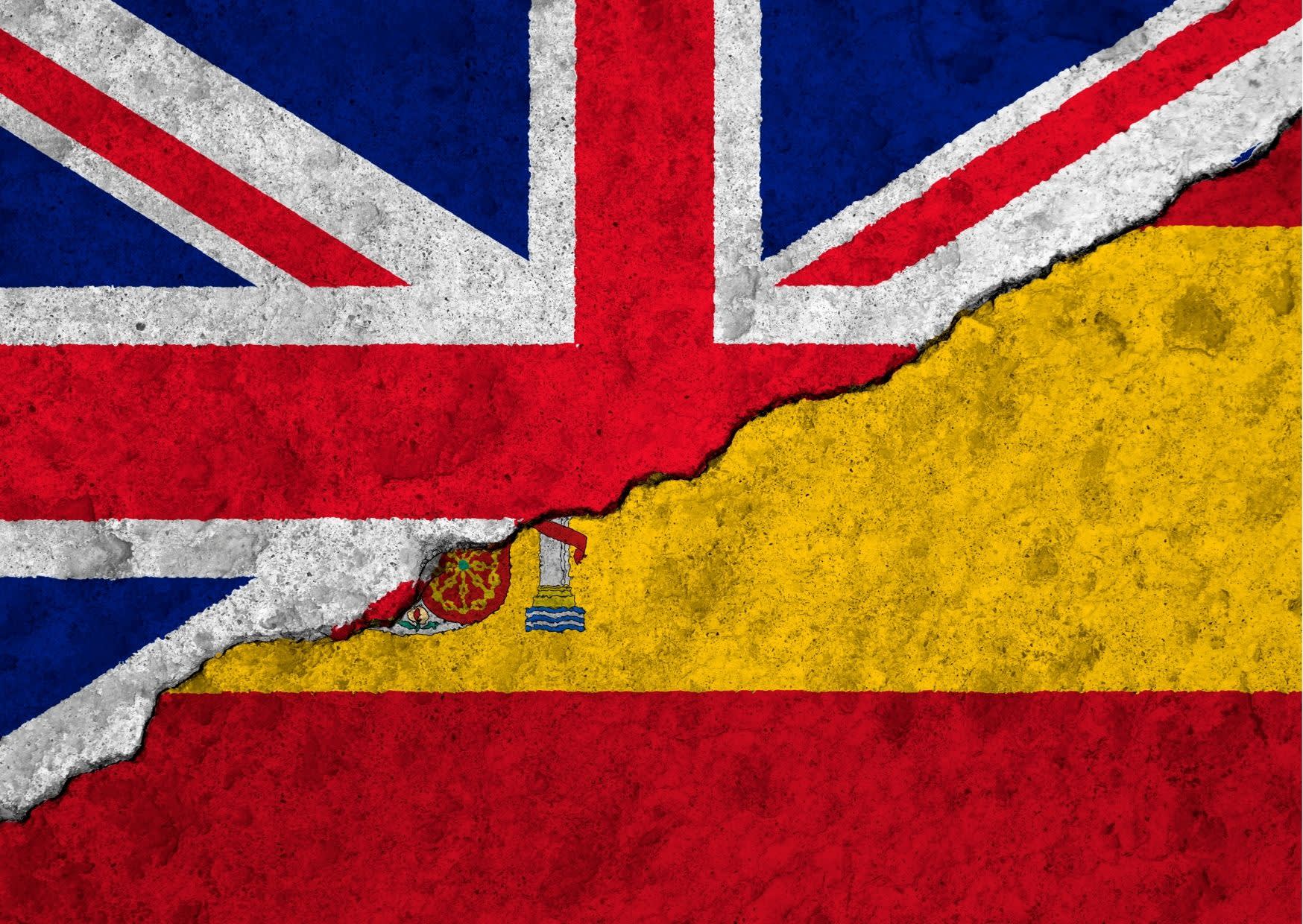How to move to Spain after Brexit (2023)
A handy overview of the changes to the conditions for UK citizens moving to Spain after Brexit.
Yordan
It's certainly possible for you to move from the UK to Spain after Brexit. Though, the procedures after Brexit are more extensive after the end of the transition period on the 31st of December 2020. Expect a longer administrative process than the one pre-Brexit.
Keep reading to find out what the process implies!
The British top the list of foreign nationalities in Spain: more than 300,000 Brits have settled in Spain to date.
Conditions of moving from the UK to Spain after Brexit

With Brexit, the rules for the free movement of individuals within the European Union won’t apply to British nationals. After the 31st of December 2020, Brits are bound by new conditions.
Short term visits
Despite no longer being part of the EU, Spain has added the UK to the list for visa-exempt countries. This means that Brits can visit Spain for up to 90 days within a 180-day period.
If you enter and exit Spain numerous times within a 180-day period, ensure that you don't exceed 90 days. Exceeding the limit of your stay will result in legal consequences!
From May 2024 you’ll need to apply for an ETIAS visa waiver before going to Spain. This's an application that's intended for all visitors who don't need a visa to enter the EU.
Moving from the UK to Spain Mid to Long-term
Moving from the UK to Spain mid to long-term require Brits to attain a visa that corresponds to their reason of stay. The cost of a visa for an adult's €80.
You've to submit the visa application in the UK within 90 days on the intended travel date. You can’t file the application from within Spain.

Required documents for your visa application
You need to submit the following documents to the Spanish Consulate in the UK:
- National visa form (available on the local Spanish Consulate website)
- Health insurance policy from a private entity accredited to operate within Spain
- A bank certificate signifying the availability of required funds per year (roughly €700 per month)
- 2 colour photos with a white background (3.5 x 4.5 cm), taken no more than 6 months ago
- Original passport with a minimum period of validity of 1 year and at least two blank pages
- A medical certificate proving that the individual doesn't have any restricting diseases
- Clean criminal record from the countries where the individual has resided in the past 5 years translated in Spanish
All documents need to be translated to Spanish and must have an apostille stamp.
What might hinder your visa application?
Factors that would hinder the successful relocation of British individuals:
- Having a criminal record
- Have a ban on entering Spain
- Residing in Spain on an irregular basis
Moving from the UK to Spain as an employee of a Spanish organisation
As a prospective employee in a Spanish company, you're reliant on your employer to get a Spanish work permit.
Your prospective employer has to submit the visa application to the provincial office of the Ministry of Labor (elegación Provincial del Ministerio de Trabajo e Inmigración).
The approval process might take up to 8 months. In the meantime, you'll receive a copy of the application. Send this to the Spanish embassy to move the visa application process forward.
Moving to Spain as an employee of an organisation based outside of Spain
You have to provide the contract for your employment along with further proof in the form of past payslips. The past payslips serve to indicate that you'll have enough money to live on.
Apart from that, you've to apply for a non-profit visa (permiso de residencia no lucrativa).
Moving from the UK to Spain as a self-employed worker
Self-employed Brits moving to Spain after Brexit have to claim their status as “Self-employed” by doing the following:
- Apply for a self-employed (freelance) visa
- Prove required qualifications for the business activity
- Prove that the commercial operation they are carrying out is legal as per Spain’s legal system
- Supply a business plan approved by one of the appropriate Spanish authorities
- Verify that sufficient funds or investments are present
- Show they're above 18 years old
- Show a medical certificate proving good health
- Show proof of private health insurance

Moving from the UK to Spain as a student
In order to study in Spain, you must apply for a Spanish student visa. Some of the main documents include:
- Visa application form
- Proof of registration in an educational institution
- Private health insurance
- Proof of sufficient financial means to support their stay
- Proof of accommodation
Moving from the UK to Spain as a non-employed person
Brits who aren't going to be working in Spain, for example, retired individuals or backpackers, have to:
- Make an application for a non-lucrative visa (permiso de residencia no lucrativa)
- Provide formal proof of availability of funds to cover the cost of living
- Indicate that there has been a steady account balance available in the previous year, including the account number and the name of the holder
With the visa secured, you’ll be issued a biometric residence card called Tarjeta de Identidad de Extranjero (TIE). The TIE card's what's going to make your life easier when it comes to border crossings and dealing with administrative matters.
Keep in mind: all visas must be renewed every 2 years until you’re eligible to apply for a permanent resident card in Spain.
Moving to Spain as a family member of a UK citizen
Spain has a family reunification visa that makes it possible for British citizens residing in Spain to bring along their direct family members. This includes their spouse, children and ascendants (parents or in-laws).
To apply for this, you must have renewed your initial Spanish residence permit at least once. For the long-list of requirements, read our guide on getting a Spanish family reunification visa.
Tips for those applying for a visa
If you’re still in the process of applying for a visa, it’s a good idea to start searching for your new house in Spain as the market can be competitive. This's especially true if you plan on living in one of the best cities in Spain as they tend to be popular with expats.
If you’re specifically curious about the best places to live in Spain for the English, you can look into places like Alicante, Málaga, or Costa Blanca.
How to get a permanent residency in Spain after Brexit
You can acquire permanent residency in Spain in 2 ways:
- EU long-term residence permit
- Spanish citizenship
EU long-term residence permit as UK citizen after Brexit
If you're not keen on changing your nationality, then you can apply for an “EU long-term residence permit” (permiso de residencia de larga duración) after 5 uninterrupted years in Spain or any EU state.
This residence permit grants you the ability to work freely and reap the benefits from the social welfare in Spain. On top of that, you can move to other EU states for no longer than 3 months at a time.
How to get the EU long-term residence permit as a UK citizen
Applicants for the EU long-term residence permit must fulfil the following conditions:
- Possess a valid passport;
- Provide proof of legal residence in Spain in the form of a long-term rental contract or rent receipts
- Hand over a certificate indicating that you don’t have a criminal record issued by the authorities in the UK
- Provide a Medical certificate (certificado medico)
- Provide proof of guaranteed healthcare coverage for the full period of residence
Spanish Nationality as UK citizen after Brexit
You can apply for Spanish citizenship after 10 years of residence in Spain. This requires Brits to prove that they have no criminal record and a sufficient integration into Spanish culture (e.g. proficiency in Spanish and participation in social activities).
How to get the Spanish nationality as a UK citizen
Applications for citizenship status have to be personally submitted at the local civil registry in Spain and require the following items to be supplied:
- A filled-in Spanish Citizenship form
- An original and a photocopy of the previous passport
- 3 pictures (3.5 x 4.5 cm)
Fulfilling those requirements would grant you the ability to permanently reside in Spain and travel around other EU member states freely.
Please reach out to content@housinganywhere.com if you have any suggestions or inquiries about the content on this page.
Related articles
In this article
Conditions of moving from the UK to Spain after Brexit
Moving from the UK to Spain as an employee of a Spanish organisation
Moving to Spain as an employee of an organisation based outside of Spain
Moving from the UK to Spain as a self-employed worker
Moving from the UK to Spain as a student
Moving from the UK to Spain as a non-employed person
Moving to Spain as a family member of a UK citizen
Tips for those applying for a visa
How to get a permanent residency in Spain after Brexit
EU long-term residence permit as UK citizen after Brexit
Spanish Nationality as UK citizen after Brexit
Moving to Spain?
Find accommodation in cities across Spain. Book the place of your dreams from verified landlords even before relocating!
Search Now

